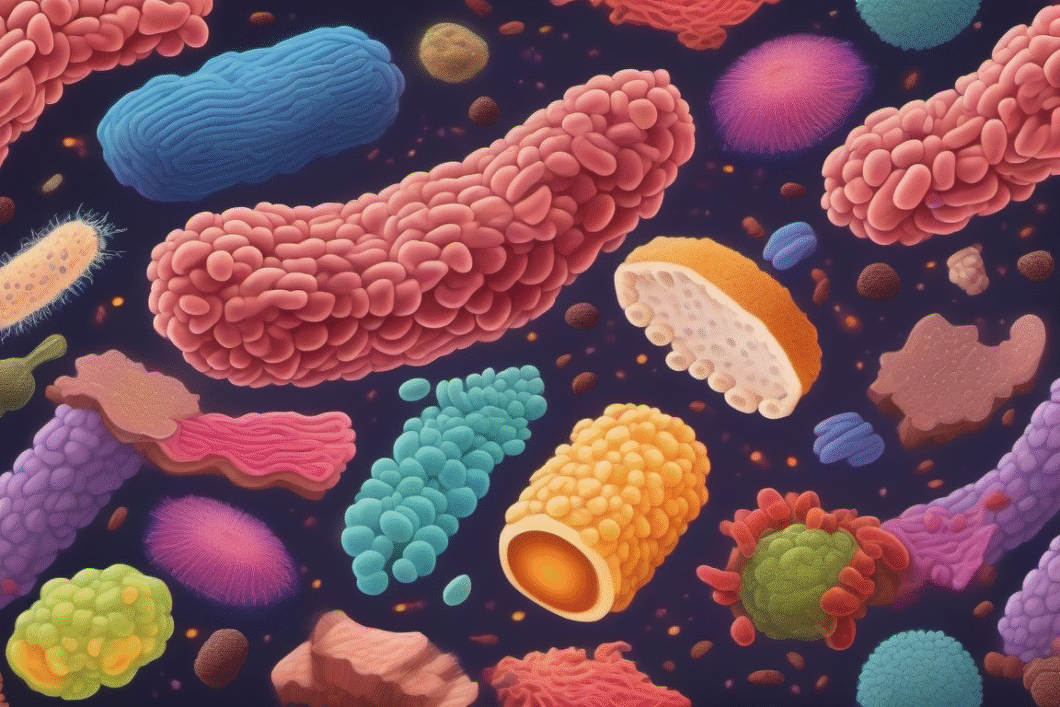The Science and Benefits of Prebiotics, Probiotics, and Fermented Foods
Table of Contents
- 1. Introduction: Why Gut Health Matters
- 2. What Is the Gut Microbiome?
- 3. The Role of Prebiotics: Feeding Your Good Bacteria
- 4. The Power of Probiotics: Live Microbes for a Healthier Gut
- 5. Fermented Foods: Nature’s Probiotic Powerhouses
- 6. Prebiotic vs. Probiotic: What’s the Difference?
- 7. Best Foods for Gut Health (with Lists)
- 8. Signs of a Healthy and Unhealthy Gut
- 9. How to Improve Gut Health Naturally
- 10. Common Myths & FAQs
- 11. Scientific References & Further Reading
1. Introduction: Why Gut Health Matters
Gut health is foundational for digestion, immunity, mood, and even chronic disease prevention. The gut microbiome—a vast ecosystem of trillions of microbes—plays a crucial role in your overall well-being.
2. What Is the Gut Microbiome?
The gut microbiome refers to all the microorganisms living in your digestive tract. These bacteria, yeasts, and viruses help digest food, produce vitamins, and protect against pathogens. An imbalanced microbiome (dysbiosis) is linked to digestive issues, obesity, diabetes, and more.
3. The Role of Prebiotics: Feeding Your Good Bacteria
Prebiotics are non-digestible fibers that act as food for beneficial gut bacteria. They help these microbes thrive, outcompete harmful bacteria, and produce short-chain fatty acids—crucial for gut lining health and reducing inflammation.
Common Prebiotic Foods:
- Garlic
- Onions
- Leeks
- Asparagus
- Bananas (especially slightly green)
- Oats
- Apples
- Chicory root
4. The Power of Probiotics: Live Microbes for a Healthier Gut
Probiotics are live microorganisms that, when consumed in adequate amounts, confer health benefits by restoring or enhancing the gut flora. They’re found in both supplements and certain foods.
Health Benefits:
- Improve digestion and nutrient absorption
- Support immune function
- May reduce symptoms of IBS and diarrhea
- Can influence mood and mental health
5. Fermented Foods: Nature’s Probiotic Powerhouses
Fermented foods are rich in live bacteria and yeasts. They naturally contain probiotics and other bioactive compounds that support gut health.
Examples of Fermented Foods:
- Yogurt with live cultures
- Kefir
- Sauerkraut
- Kimchi
- Miso
- Tempeh
- Kombucha
- Pickles (naturally fermented, not vinegar-based)
6. Prebiotic vs. Probiotic: What’s the Difference?
- Prebiotics: Food for your gut bacteria (fibers, resistant starches)
- Probiotics: Live beneficial bacteria you consume
- Synbiotics: Products that combine both
7. Best Foods for Gut Health (with Lists)
- Prebiotic-rich: Garlic, onions, asparagus, oats, green bananas
- Probiotic-rich: Yogurt, kefir, sauerkraut, kimchi, miso, tempeh
- Fermented foods: Kombucha, pickles (brine-fermented), natto
8. Signs of a Healthy and Unhealthy Gut
Healthy Gut:
- Regular, pain-free digestion
- Rare bloating or gas
- Strong immunity
- Good mood and energy
Unhealthy Gut:
- Frequent digestive issues (bloating, constipation, diarrhea)
- Food intolerances
- Fatigue
- Frequent illness
9. How to Improve Gut Health Naturally
- Eat a diverse, fiber-rich diet
- Include prebiotic and probiotic foods daily
- Limit ultra-processed foods and added sugars
- Manage stress and get enough sleep
- Stay hydrated
- Exercise regularly
10. Common Myths & FAQs
- Are all fermented foods probiotic? Not always—heat-treated or pasteurized products may not contain live cultures.
- Do probiotics need to be refrigerated? Many do, but some shelf-stable strains are effective.
11. Scientific References & Further Reading
- Mayo Clinic: Probiotics and prebiotics
- NIH: Prebiotics and their health effects
- Nature: Fermented foods and gut bacteria

